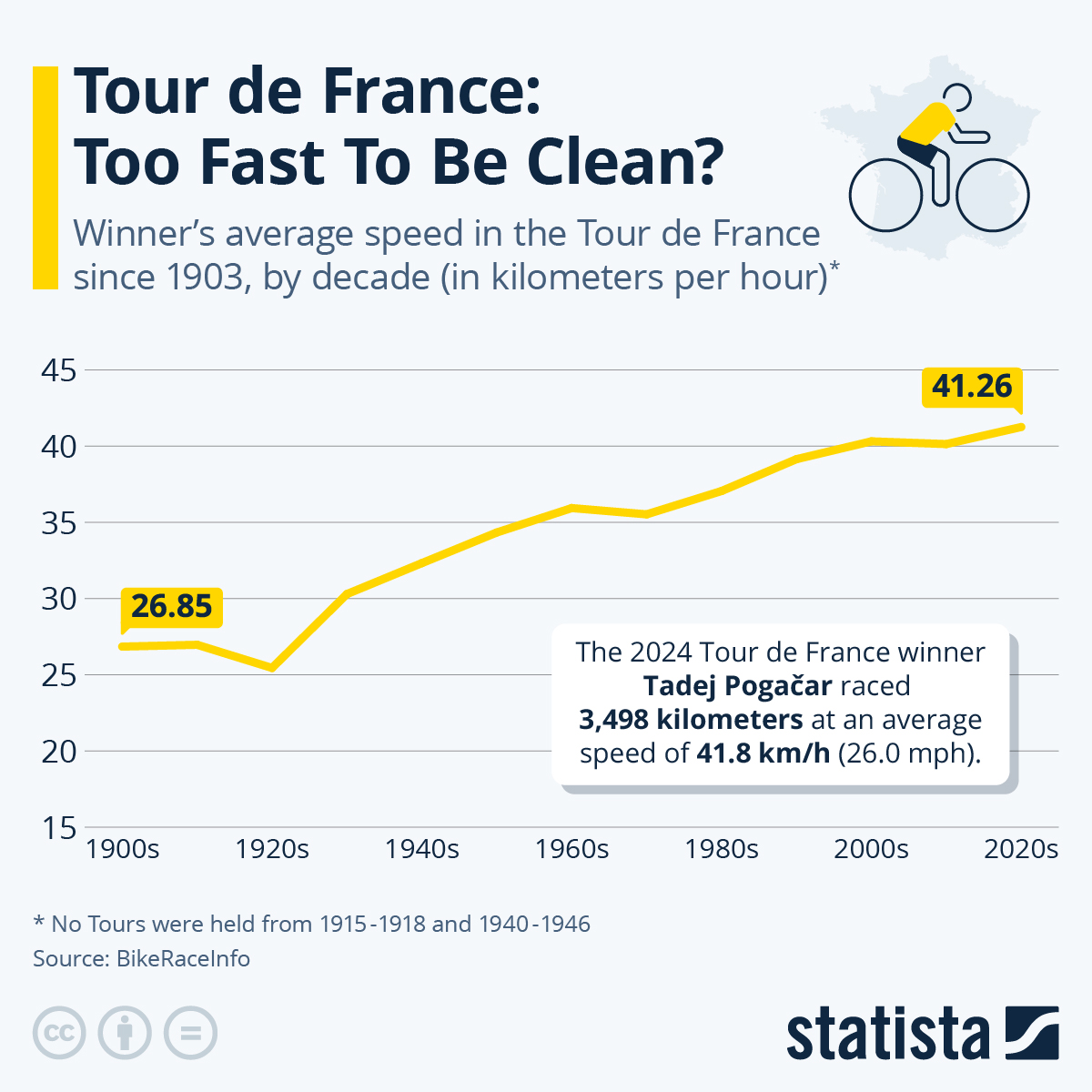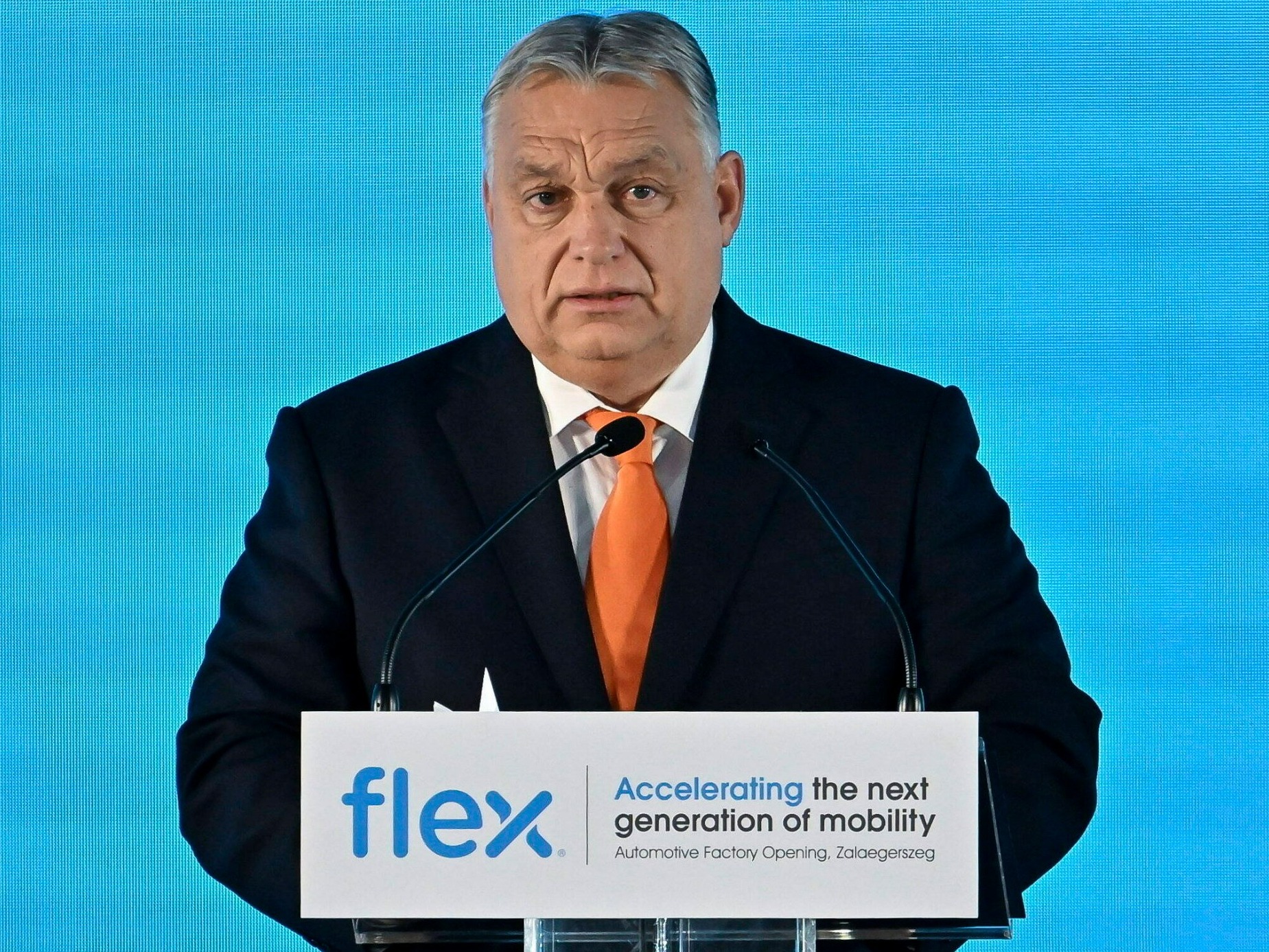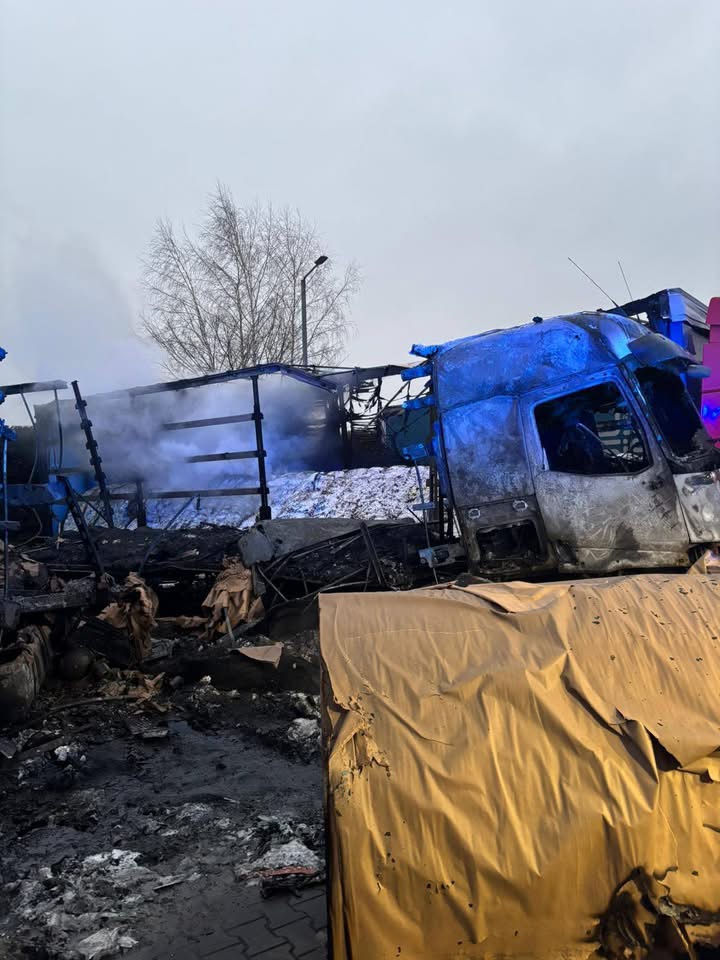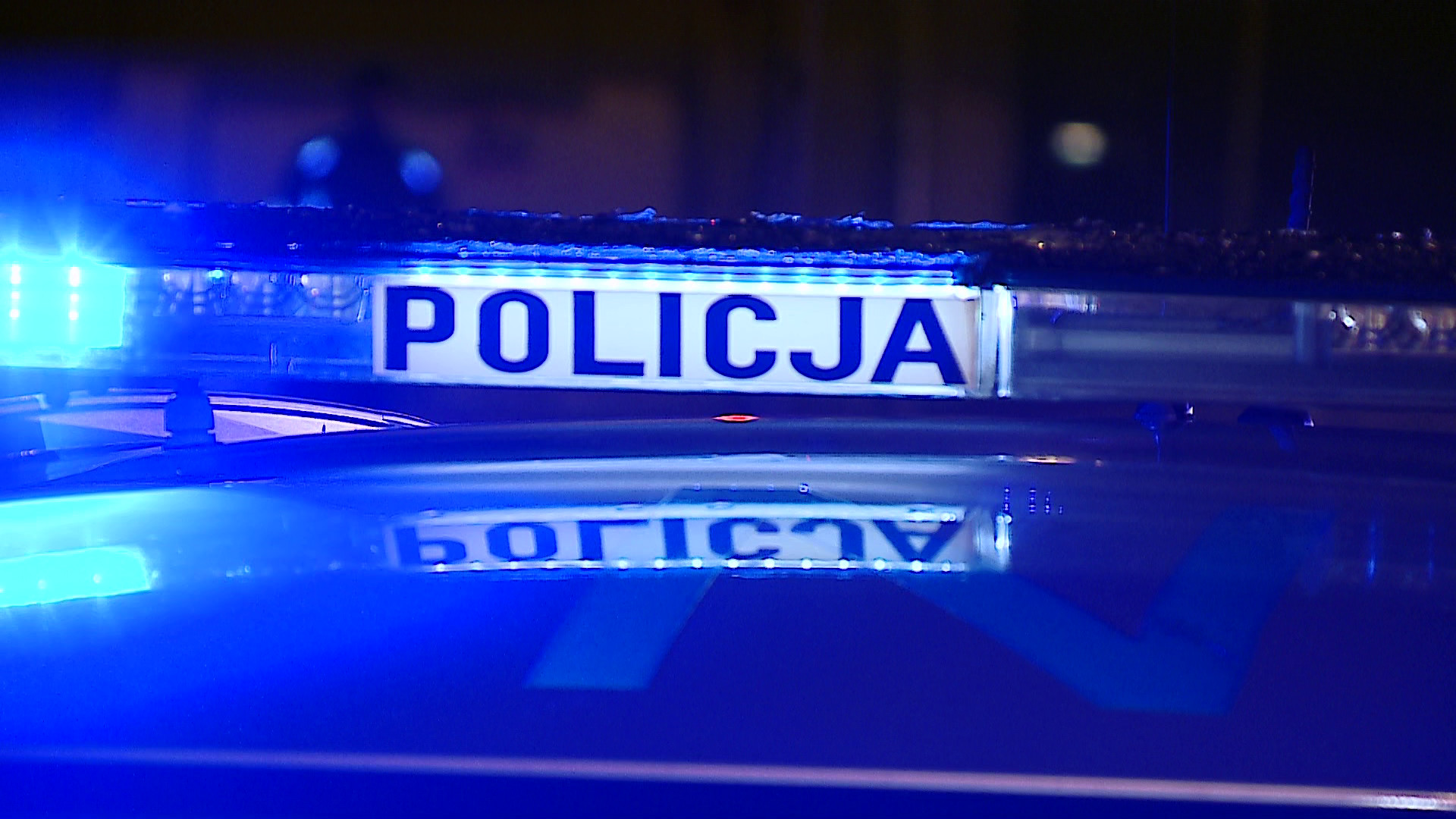
Tour de France: Too Fast To Be Clean?
12 months after becoming the first rider since Marco Pantani in 1998 to win the Giro d’Italia and the Tour de France in the same year, Tadej Pogačar is en route to another dominant Tour victory.
And, as Statista’s Felix Richter reports, like last year, when an investigative story by the Escape Collective revealed that elite teams were using controversial carbon monoxide rebreathing equipment in altitude training, this year’s Tour was also plagued by questions about its dirty past.
David Rozman, head soigneur of Ineos Grenadiers, left his team after German public service broadcaster ARD had reported that an Ineos staff member, later revealed to be Rozman, had past links to a known and convicted doping doctor.
Stories like this, paired with Pogačar’s sheer dominance, naturally fuel doubts about the integrity of the sport that is trying so hard to clean up its image and shake its past.
„There will always be doubts,” Pogačar, who has never failed an anti-doping test, said after his 2024 victory, before explaining that risking one’s health to improve performance was „not worth it” and „stupid”.
After this year’s performance – Pogačar completed the 2,889 kilometers of the first 18 stages at an average speed of 43 km/h (26.7 mph) – those doubts will likely remain.
Given cycling’s deservedly bad reputation, it is perhaps understandable that exceptional performances like that still raise suspicions.
As this chart shows, the Tour de France has not slowed down since the doping-infested years of the early 2000s.

You will find more infographics at Statista
Whether that’s due to super-fast carbon bikes, advances in sports science, favorable routing or the use of performance-enhancing substances is a question that is lingering in the back of many people’s minds.
Tyler Durden
Sat, 07/26/2025 – 09:55

 4 miesięcy temu
4 miesięcy temu











